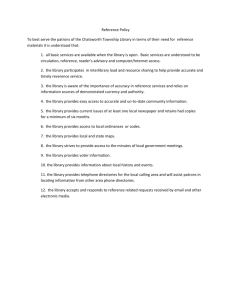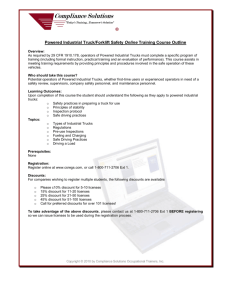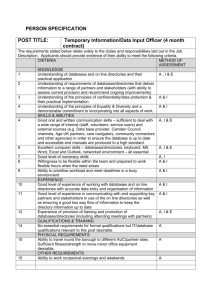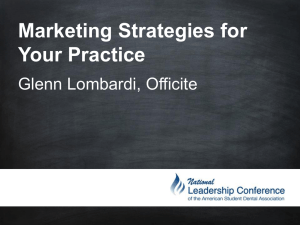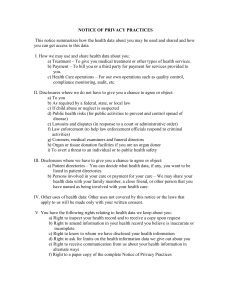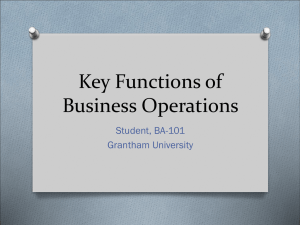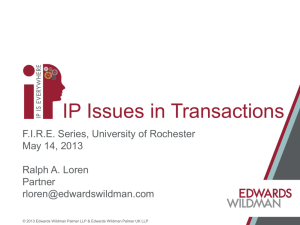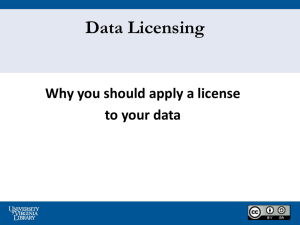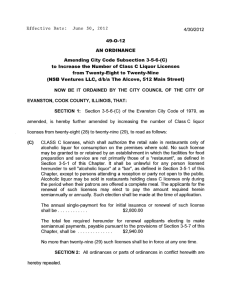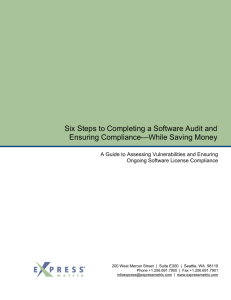Backgrounding the individual on deadline
advertisement
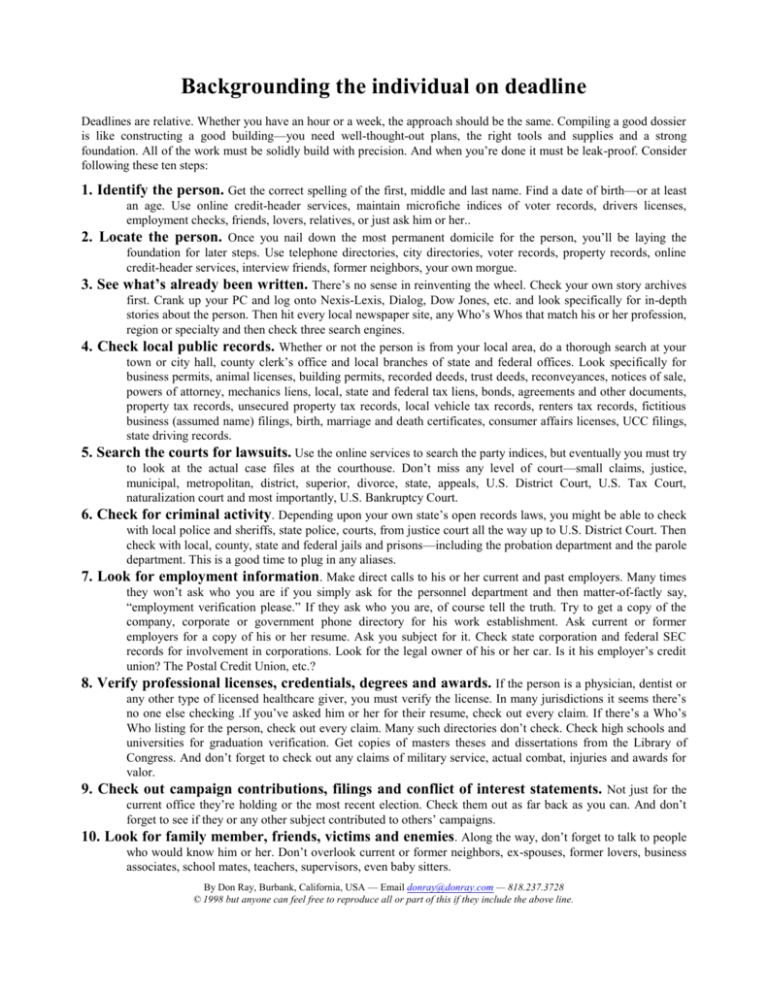
Backgrounding the individual on deadline Deadlines are relative. Whether you have an hour or a week, the approach should be the same. Compiling a good dossier is like constructing a good building—you need well-thought-out plans, the right tools and supplies and a strong foundation. All of the work must be solidly build with precision. And when you’re done it must be leak-proof. Consider following these ten steps: 1. Identify the person. Get the correct spelling of the first, middle and last name. Find a date of birth—or at least an age. Use online credit-header services, maintain microfiche indices of voter records, drivers licenses, employment checks, friends, lovers, relatives, or just ask him or her.. 2. Locate the person. Once you nail down the most permanent domicile for the person, you’ll be laying the foundation for later steps. Use telephone directories, city directories, voter records, property records, online credit-header services, interview friends, former neighbors, your own morgue. 3. See what’s already been written. There’s no sense in reinventing the wheel. Check your own story archives first. Crank up your PC and log onto Nexis-Lexis, Dialog, Dow Jones, etc. and look specifically for in-depth stories about the person. Then hit every local newspaper site, any Who’s Whos that match his or her profession, region or specialty and then check three search engines. 4. Check local public records. Whether or not the person is from your local area, do a thorough search at your town or city hall, county clerk’s office and local branches of state and federal offices. Look specifically for business permits, animal licenses, building permits, recorded deeds, trust deeds, reconveyances, notices of sale, powers of attorney, mechanics liens, local, state and federal tax liens, bonds, agreements and other documents, property tax records, unsecured property tax records, local vehicle tax records, renters tax records, fictitious business (assumed name) filings, birth, marriage and death certificates, consumer affairs licenses, UCC filings, state driving records. 5. Search the courts for lawsuits. Use the online services to search the party indices, but eventually you must try to look at the actual case files at the courthouse. Don’t miss any level of court—small claims, justice, municipal, metropolitan, district, superior, divorce, state, appeals, U.S. District Court, U.S. Tax Court, naturalization court and most importantly, U.S. Bankruptcy Court. 6. Check for criminal activity. Depending upon your own state’s open records laws, you might be able to check with local police and sheriffs, state police, courts, from justice court all the way up to U.S. District Court. Then check with local, county, state and federal jails and prisons—including the probation department and the parole department. This is a good time to plug in any aliases. 7. Look for employment information. Make direct calls to his or her current and past employers. Many times they won’t ask who you are if you simply ask for the personnel department and then matter-of-factly say, “employment verification please.” If they ask who you are, of course tell the truth. Try to get a copy of the company, corporate or government phone directory for his work establishment. Ask current or former employers for a copy of his or her resume. Ask you subject for it. Check state corporation and federal SEC records for involvement in corporations. Look for the legal owner of his or her car. Is it his employer’s credit union? The Postal Credit Union, etc.? 8. Verify professional licenses, credentials, degrees and awards. If the person is a physician, dentist or any other type of licensed healthcare giver, you must verify the license. In many jurisdictions it seems there’s no one else checking .If you’ve asked him or her for their resume, check out every claim. If there’s a Who’s Who listing for the person, check out every claim. Many such directories don’t check. Check high schools and universities for graduation verification. Get copies of masters theses and dissertations from the Library of Congress. And don’t forget to check out any claims of military service, actual combat, injuries and awards for valor. 9. Check out campaign contributions, filings and conflict of interest statements. Not just for the current office they’re holding or the most recent election. Check them out as far back as you can. And don’t forget to see if they or any other subject contributed to others’ campaigns. 10. Look for family member, friends, victims and enemies. Along the way, don’t forget to talk to people who would know him or her. Don’t overlook current or former neighbors, ex-spouses, former lovers, business associates, school mates, teachers, supervisors, even baby sitters. By Don Ray, Burbank, California, USA — Email donray@donray.com — 818.237.3728 © 1998 but anyone can feel free to reproduce all or part of this if they include the above line.
